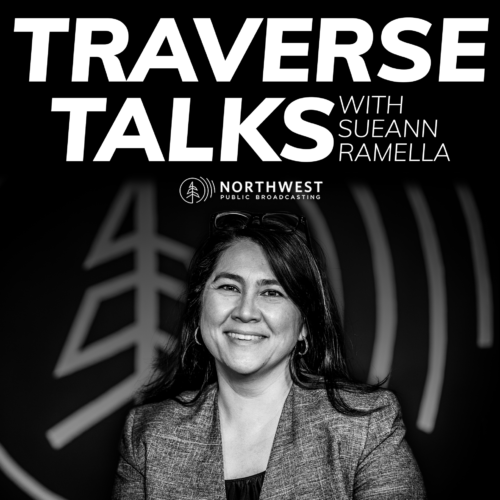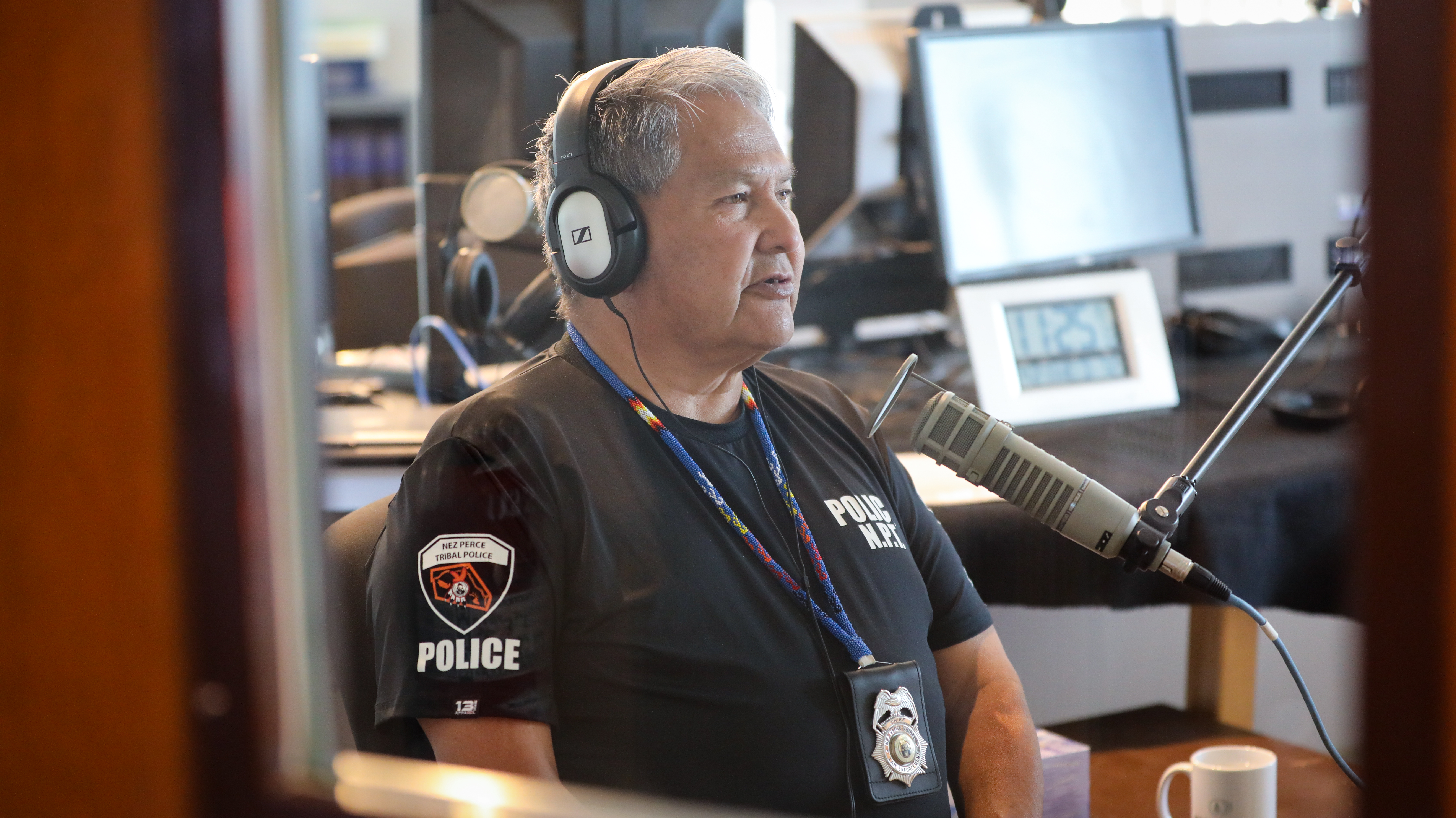
‘Traverse Talks’ Episode 20: Harold Scott On Changing The Culture Of Policing
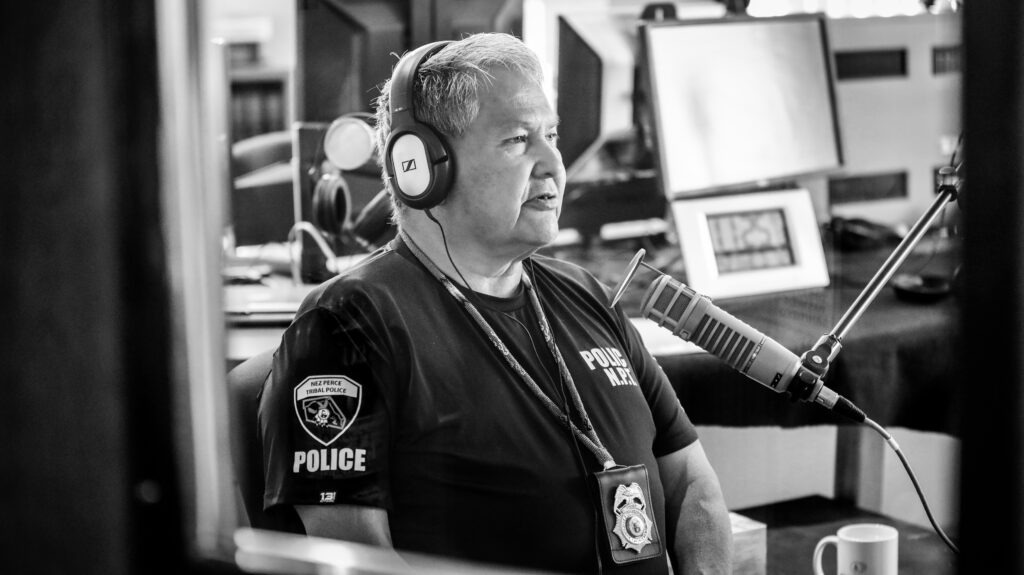
In this episode of Traverse Talks with Sueann Ramella, Nez Perce Tribal police chief Harold Scott talks about his childhood in Lapwai, Idaho and how the racism and disrespect placed on him and his community lead him to a career in law enforcement where he hopes to change the culture of policing. Harold has been in law enforcement since 1983 where he started his career with the Bureau of Indian Affairs, then he worked as the chief of police for the Coeur d’Alene Tribe before taking charge of casino security for the Nez Perce Tribe. Harold became the Nez Perce Tribal police chief in 2016. Listen to his episode below or stream Traverse Talks with Sueann Ramella, wherever you get your podcasts.
SUBSCRIBE: Spotify / Apple Podcasts / NPR One /
Listen
Conversation Highlights:
The Good And The Bad – How Is Childhood Shaped Him:
Sueann Ramella: Chief Scott, you grew up in Lapwai, [Idaho.] What was it like growing up in [there] in the sixties and seventies?
Harold Scott: There was some good times and there was some very educational, bad times.
Sueann: Tell me about the good times first.
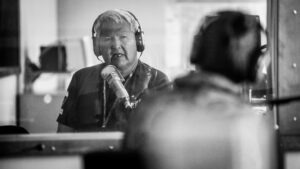
Nez Percé Tribal police chief Harold Scott talking with host Sueann Ramella.
Harold: Ah, the good times growing up with a very large family. Eight brothers, eight sisters, we were very close. Lapwai was very quiet at the time during the daytime. Then we had a lot of cultural stuff to take part in, a lot of sporting events that we could participate in. So, it made it kind of nice.
Sueann: And what were the challenging times or the educational times when you were growing up?
Harold: There was a lot of racism. Basically a person of color being stopped by officers as we’re walking on the street. I grew up with very respectful parents. You had to be respectful for everybody, no matter who it was, you had to respect them. But when that respect was taken away by officers who would pull you over just to question you and accuse you for something that you weren’t even a part of, made it pretty rough.
Sueann: What did that do to you as a young person inside?
Harold: It was very frustrating. I remember one particular [time], me and my cousin was just walking down the street and we were trying to see who can jump the highest. And we were jumping up to touch the top of a stop sign and a cop pulled us over and told us we were vandalizing city property and put handcuffs on both of us and put us in a patrol car.
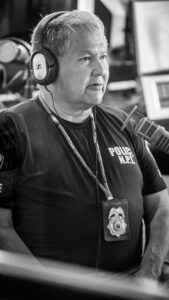
Nez Perce Tribal police chief Harold Scott.
Sueann: How old were you?
Harold: Maybe 10. Were were just young. We were just playing on the street like any other kid could would do.
Sueann: How frightening was that for you?
Harold: Unfortunately, it became a norm.
Sueann: You get used to it or you just expect it to happen then?
Harold: After a while you did.
‘Arrest Isn’t Really Doing The Job’:
Sueann: You have seen changes in the way policing has been done. How much more change do you think needs to happen in policing culture or the way that we approach policing?
Harold: I think law enforcement officers all need to realize that the people that we’re policing are just people and when we are policing, we are not different. Our job is to maintain a safe environment. One of the big things that I teach in my experience is arrest isn’t really doing the job, arrest is your last resort. If you can communicate with anybody to resolve a situation, you’ve done your job. I felt growing up that if the officers back then just saw people as people and we’re all not perfect, if we were the world would be perfect. Unfortunately, we are who we are and because of that, we all think different. We all have different behaviors. We all have different cultures and at the same time, we just need to respect each other’s person in that way.
Protecting The Next Generation With Respect:
Sueann: How would you say the community perceives you? Like what do you think your reputation is?
Harold: [Chuckles.] I hope good, but it’s a tough job. It’s a very tough job. All I can do is say that no matter what, I respect them. They have every right to voice their opinion. That’s the way that I learned. They have every right to criticize. That’s the way I learned. It’s kind of like getting grades in school. If I’m getting an F then I need to bring it up. But that’s how I look at it, I really believe that people have that right.
Sueann: So now, as a wise, older police chief, when you think back to that officer that handcuffed you when you were 10, what do you understand about him?
Harold: I understand that now it’s my turn to teach them so those kinds of things don’t happen. And that’s the reason why I became a police officer so I could represent those who were victimized in those situations.
*Question and responses were edited for length and clarity.
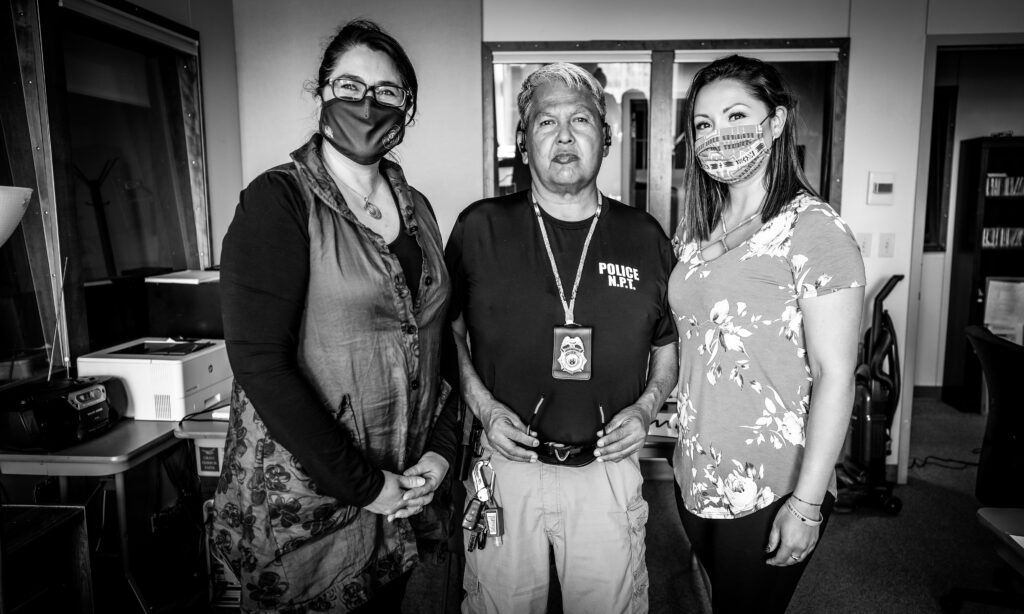
Photo of host Sueann Ramella [left], guest police chief Harold Scott and Nez Perce Tribe communications manager and daughter of Harold, Kayeloni Scott in the studios of NWPB on April 21, 2021.
Related Stories:
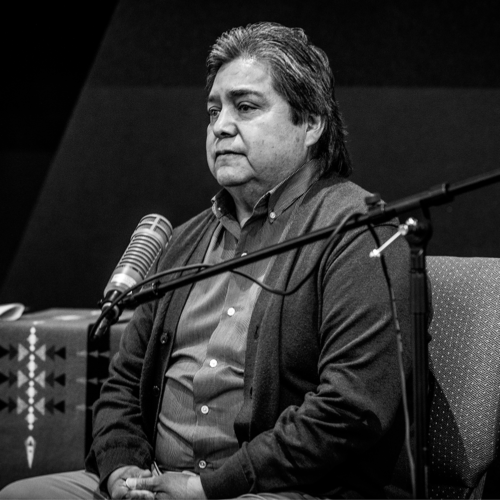
Captive Returns Home: The Story Of Wetxuuwíitin – ‘Traverse Talks’ Episode 42 – With Chairman Samuel Penney
Photo of Sam Penney recording Traverse Talks at the Nez Perce National Historic Park on March 10, 2022. Imagine a stranger took your family’s heirlooms and then offered you an
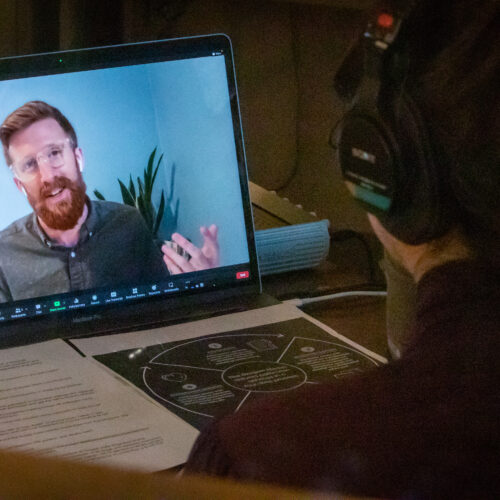
Psilocybin: Psychology, Policy and Possibilities – ‘Traverse Talks’ Episode 41 – With Sam Chapman
Sueann Ramella interviews Sam Chapman virtually on April 19, 2022. What do you really know about psilocybin, commonly known as magic mushrooms? Research on the substance has lagged behind in
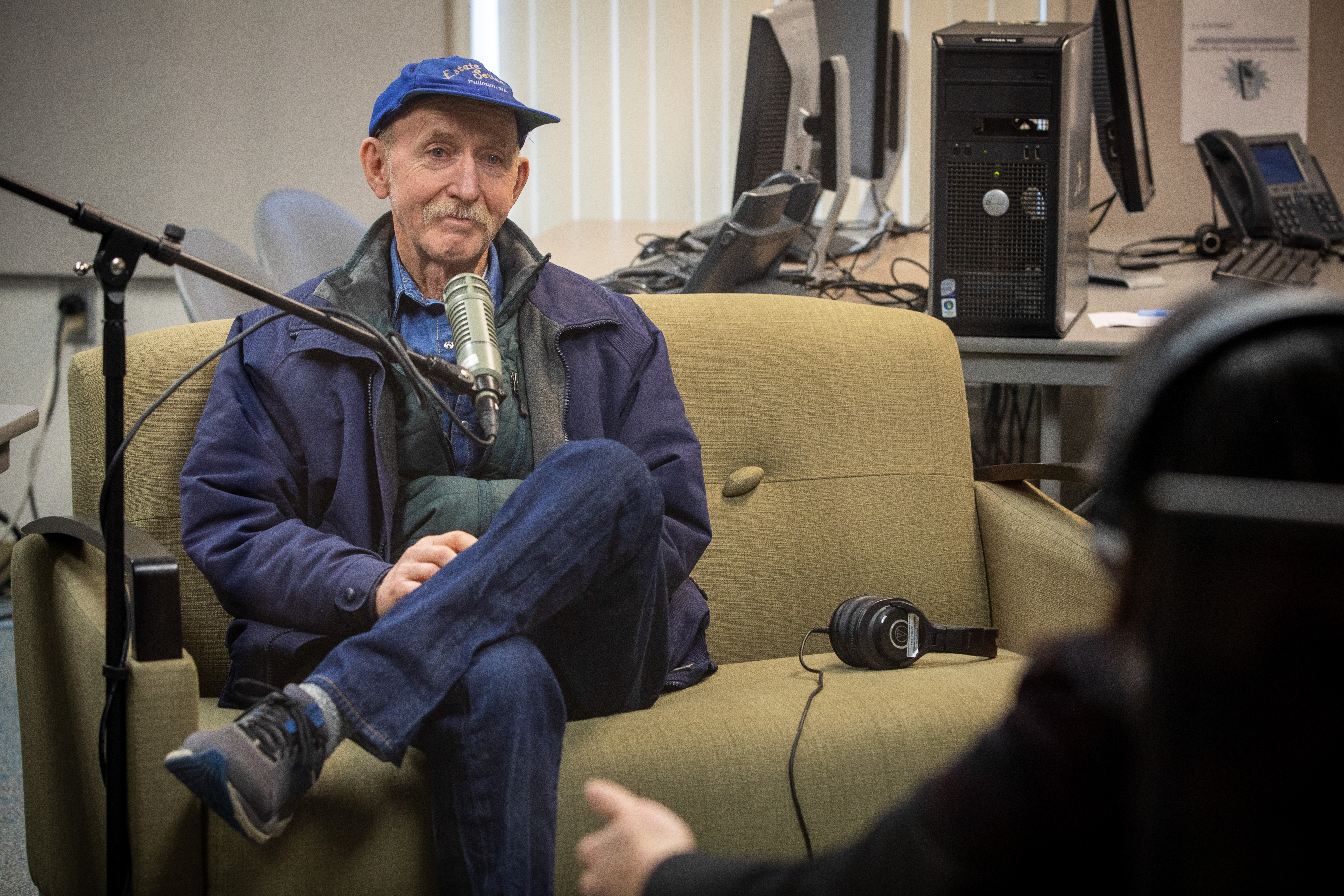
You Inherited A House Full Of Stuff. What’s Next? ‘Traverse Talks’ Episode 38 – With Estate Services Owner Rich Old
Rich Old recording this episode of Traverse Talks on March 3rd, 2022. Grieving the loss of a loved one is already hard enough. To make matters worse, many people have

